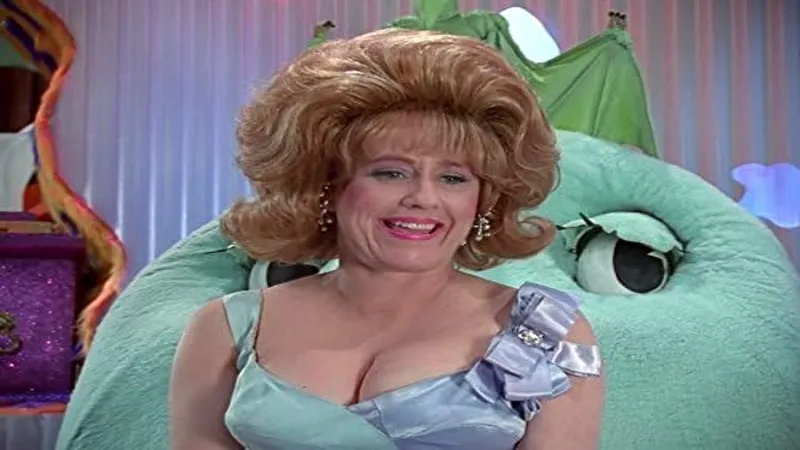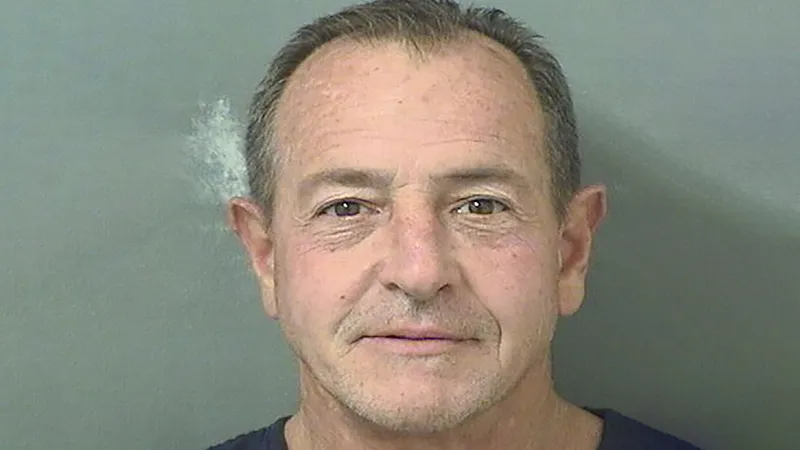Wendy Williams, a name synonymous with bold opinions and captivating television, finds herself in a reality that starkly contrasts her former life of glamour and fame. The new documentary, “TMZ Presents: Saving Wendy,” available on Tubi, unpacks the complexities of her current existence, drawing parallels to the isolation felt by those behind bars. Living in an assisted facility in New York City, Wendy’s days are marked by confinement and limited connection, raising questions about her guardianship and the impact of Frontotemporal Dementia on her vibrant spirit. As we explore her journey towards recovery and the restrictive nature of her circumstances, we delve into the heart of her resilience and the hope for a brighter future.
Wendy’s Isolation: A Life Behind Closed Doors
Wendy Williams’s life has taken a turn that many may find hard to understand. Living in an assisted living facility in New York City, Wendy feels trapped in her own world. She is confined to the fifth floor and cannot leave without staff permission. This isolation can feel like being in a jail cell, as she rarely gets to experience the outside world. In fact, she has only been outside for fresh air twice in the past month, both times just for dentist appointments.
The loneliness Wendy faces is intensified by her limited communication with the outside world. With no internet access and almost no visitors, her days can feel very lonely. She eats in her room, avoiding the common area filled with elderly individuals facing serious health challenges. This situation has made her life challenging, as she longs for connections and a sense of freedom that many of us take for granted.
The Documentary: A Window into Wendy’s World
The new documentary, “TMZ Presents: Saving Wendy,” sheds light on Wendy’s current situation and the challenges she faces. Filmed from the sidewalk, the documentary captures her speaking from the fifth floor window, showcasing her desire to connect with others despite her restrictions. It’s a unique way to tell her story, allowing viewers to see the struggles she endures while still trying to maintain her spirit in a restrictive environment.
This documentary not only highlights Wendy’s current experiences but also aims to raise awareness about the issues surrounding guardianship. By sharing her journey, it encourages conversations about the rights of individuals in similar situations. Wendy’s story resonates with many and serves as a reminder of the importance of freedom and connection, even when life feels confining.
Wendy’s Journey: From Struggles to Sobriety
Wendy has faced many challenges throughout her life, including struggles with substance abuse. However, she has made significant strides towards sobriety and is now in a much better mental state. Friends and family who have spoken with her agree that she seems to be returning to her old self. Her alertness and ability to engage in conversations are promising signs of her recovery, showing just how resilient she can be.
Despite her improvement, Wendy is still under strict guardianship due to her diagnosis of Frontotemporal Dementia. This condition is complex and does not improve, leading to a difficult situation for her and those who care about her. While many see her as being back to normal, the legal restrictions placed on her life continue to impact her freedom and autonomy.
Understanding Frontotemporal Dementia
Frontotemporal Dementia is a condition that affects a person’s behavior, personality, and ability to communicate. It can be difficult to understand for those who are unfamiliar with it. This type of dementia often leads to changes in mood and social behavior, which can be challenging for both the individual and their loved ones. Wendy’s diagnosis has played a significant role in shaping her current life and the limitations she faces.
While Wendy has shown improvements, it’s important to recognize that Frontotemporal Dementia is a progressive condition. This means that even though she may seem better now, the challenges associated with her diagnosis can continue to affect her in the future. Understanding this condition helps explain the complexities of her situation and the need for ongoing support from caregivers and loved ones.
The Role of Guardianship in Wendy’s Life
Guardianship can be a necessary measure for individuals who cannot care for themselves due to health issues. In Wendy’s case, her guardianship has sparked discussions about the balance between protecting individuals and allowing them the freedom to make their own choices. While it aims to ensure her safety, it also limits her interactions and experiences, making her life feel isolated.
Many people wonder if the restrictions of guardianship are truly in Wendy’s best interest. While her guardian believes it is essential due to her mental health, the debate continues about how much control is too much. Finding a way to support Wendy while also respecting her independence is a complex issue that requires careful consideration from her caregivers and family.
Support from Friends: The Importance of Connection
Wendy has a strong support system, with friends and loved ones who care about her well-being. Regular phone calls from friends like Harvey have been crucial in helping her feel connected to the outside world. These conversations provide her with encouragement and remind her that she is not alone in her journey. The emotional support she receives is vital for her mental health.
Having friends who understand her struggles can make a significant difference in Wendy’s life. They help keep her spirits up and remind her of her strength. Their ongoing support shows how important it is to maintain connections, especially during tough times. This friendship can be a lifeline, providing Wendy with a sense of normalcy and hope despite her challenging circumstances.
Frequently Asked Questions
What is the documentary ‘TMZ Presents: Saving Wendy’ about?
The documentary explores Wendy Williams’ life under guardianship, showcasing her struggles with isolation and her journey towards recovery, available for free on Tubi.
Why is Wendy Williams living in an assisted living facility?
Wendy resides in an assisted living facility due to her guardianship, which restricts her movements and interactions, aimed at ensuring her safety and well-being.
What condition does Wendy Williams have?
Wendy Williams is diagnosed with Frontotemporal Dementia, a condition affecting her cognitive functions and leading to her restrictive guardianship.
How often can Wendy Williams go outside?
Wendy has only been outside twice in the past month, both times for dentist appointments, as her movement is highly restricted.
Can people visit Wendy Williams?
Very few people are allowed to visit Wendy, and she cannot receive calls, limiting her social interactions significantly.
Is Wendy Williams’ mental health improving?
Yes, Wendy has shown significant improvement in her mental health and engagement, though she remains under strict guardianship.
Where can I watch the documentary about Wendy Williams?
You can watch ‘TMZ Presents: Saving Wendy’ for free on Tubi, highlighting her life and challenges.
Summary
Wendy Williams feels trapped in her life, similar to a person in jail, although she hasn’t committed a crime. A new documentary on Tubi, titled “TMZ Presents: Saving Wendy,” explores her years of guardianship. Currently, Wendy lives in a New York City assisted living facility where she can only go outside with staff permission and has limited communication with the outside world. Despite facing challenges from Frontotemporal Dementia, Wendy has shown improvement and is more alert and engaging. The documentary captures her story and is available for free on Tubi.




